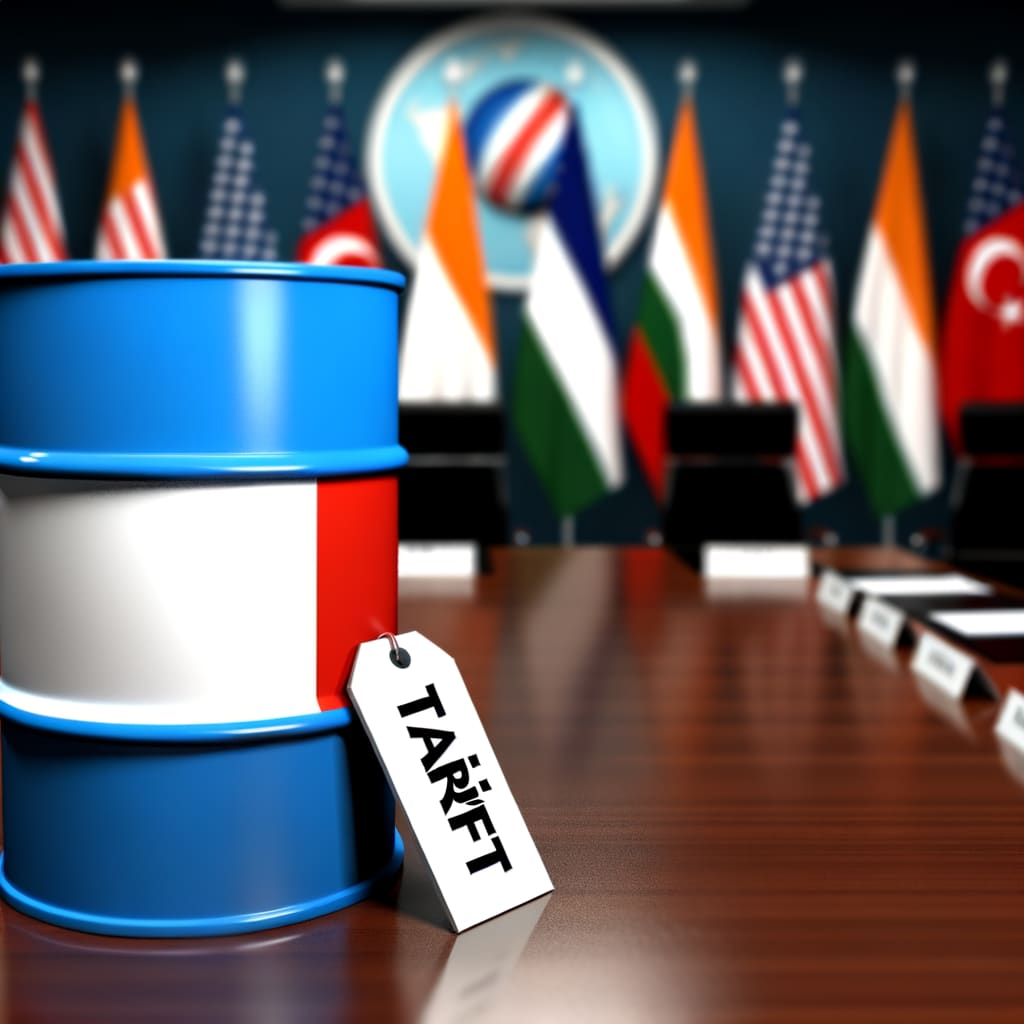US-India Relations Strained Over Russian Oil, Trump's Tariffs
US-India relations have plunged to a new low after President Donald Trump substantially raised tariffs on Indian goods citing the country's continued purchase of Russian oil. In response, Russia and India have reiterated their commitment to a strategic partnership, and India is reportedly considering pausing its plans to buy US arms. The escalating tensions underscore the delicate balance India must maintain between its economic interests and geopolitical alliances.
Background and Context
India, one of the largest importers of Russian oil, has found itself in the crosshairs of President Trump's trade war. Trump accused New Delhi of indirectly financing the Ukraine conflict through oil purchases from Russia and threatened to impose additional penalties for its defense and trade ties with Moscow12. Despite the increasing pressure from the US, India has shown resilience, with Prime Minister Modi holding an emergency cabinet meeting to discuss the US trade tariffs3.
Key Developments
President Trump has imposed an additional 25% tariff on Indian imports, bringing the total levy on one of America’s key trade partners to 50%42. The move has sparked tensions in US-India relations, with New Delhi denouncing the move as ‘unfair, unjustified and unreasonable’2.
In an executive order, Trump stated, “I find that the Government of India is currently directly or indirectly importing Russian Federation oil,”2. The tariff is set to come into effect in late August unless India changes its stance2.
Reactions and Implications
The tariff hike has put Prime Minister Modi in a tight spot, forcing him to choose between high tariffs or giving up cheap oil5. The move has also strained the relationship between India and the US, one of its most significant challenges in decades5.
India has dismissed reports of pausing its plans to buy US arms as ‘false and fabricated,’ claiming procurement of items like Javelin antitank missiles is underway6. However, the recent developments have made New Delhi hopeful that this phase of uncertainty is temporary7.
Russia, on the other hand, has accused the United States of illegally exerting commercial pressure on India8. Analysts expect the US pressure on India to be short-lived. According to Andrey Sushentsov, Trump’s negotiation tactics include the use of pressure to ensure better terms for the US but if this approach fails, the president prefers to declare a victory, quietly canceling his earlier decisions
9.
Conclusion
The escalating tensions between the US and India over Russian oil purchases and increased tariffs have strained their traditionally friendly bilateral relationship. With the new tariffs set to come into effect in late August, the next few weeks will be crucial in determining the future of US-India relations. India insists it won't give up on Russia or its strategic autonomy10, even as it faces one of its most challenging diplomatic dilemmas in recent history.

